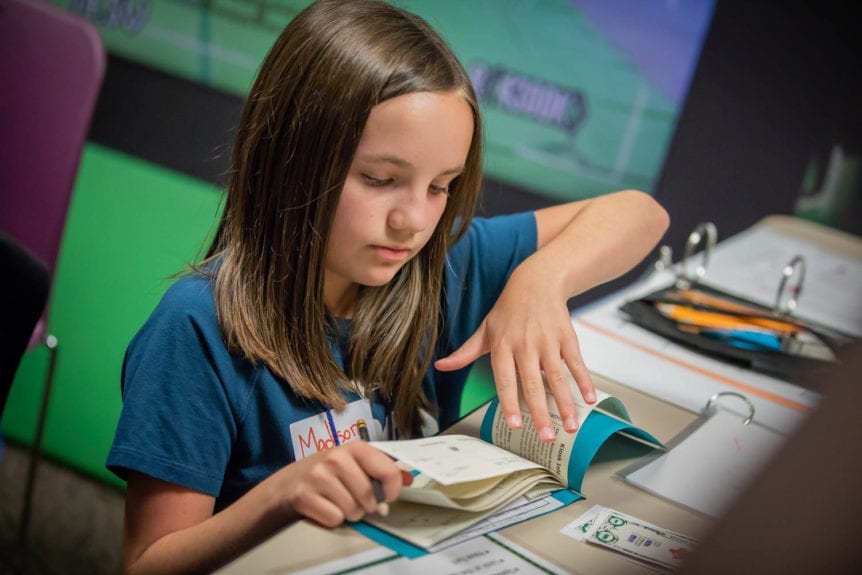Share This Article
Financial literacy – the ability to understand and effectively apply various financial skills, including personal financial management, budgeting, and investing – is increasingly important in today’s world. Beginning to teach kids at a young age about finances is the best way to ensure that they grow up to be self-sufficient, financially literate adults. Since 1988, the Center’s programs, through the support of sponsors like the Madge M. and Joseph T. Mohar Charitable Foundation, have taught young ones financial capability through three building blocks identified by the Consumer Financial Protection Bureau: executive function, financial habits and norms, and financial knowledge and decision-making skills.
Executive function – the ability to plan ahead, remember information, multitask, solve problems, and control impulses – is what helps children set savings goals, make and stick to a budget, or refrain from buying that purchase they just don’t need. At the Center, these skills are instilled through activities such as Young AmeriTowne and International Towne where students budget their earned wages to buy snacks and toys. In YouthBiz, students gain these abilities through problem/opportunity identification and competitive evaluation. Every lesson students learn throughout these programs is crafted to guide them through critical thinking skills while honing creativity, confidence, and a business mindset.
Financial habits and norms – the values, standards, routine practices, and rules to live by that children use to navigate their daily financial activities – shapes the way youth carry out day-to-day financial tasks. Children develop these skills by observing their family, their friends, and the world around them. The absolute best way to foster these skills is through hands-on, real-world experiences that let children apply what they’ve learned. This exact technique is how all the Center’s programs work. In Young AmeriTowne and International Towne, students put 20 plus hours of in-school classroom lessons to the test during their culminating experience in Towne where they run either a local economy of 16 businesses plus a municipal government or a global economy of 16 nations. In YouthBiz, youth learn the basics of entrepreneurship then put their knowledge to the test by creating their own prototype, researching production and sales logistics of their products, and pitching their business idea to a panel of judges made up of professionals.
The final building block, financial knowledge and decision-making skills – familiarity with financial concepts and competency in research and analysis – helps your child process, compare, and act on financial information they find. It is during adolescence that the development of this building block is at its height. Through the Center’s programs, students learn these skills by discovering and evaluating financial information as well as determining when they should seek out more information before making financial decisions. In Young AmeriTowne and International Towne, students learn financial knowledge and decision making skills through activities such as adjusting prices of the products their business teams are selling based on supply and demand data. In YouthBiz, students practice this through activities such as researching market trends and the raw material cost of their parts as well aslabor.
For over a decade, the Mohar Foundation has been a key sponsor in helping Colorado youth learn these important building blocks. When reflecting on the partnership with the Center, Samantha Morris, Executive Director of the Mohar Charitable Foundation, stated, “It has been with great joy that the Foundation has partnered with the Center in delivering statistically-proven programs for Colorado’s youth. Especially during these trying economic times, teaching our youth not only the importance of financial education, but actually how to be financially literate is more paramount than ever.” Thank you, Madge M. and Joseph T. Mohar Charitable Foundation, for being one of the longest supporters of the Center and giving this life changing education to more than 48,300 Colorado students a year.


